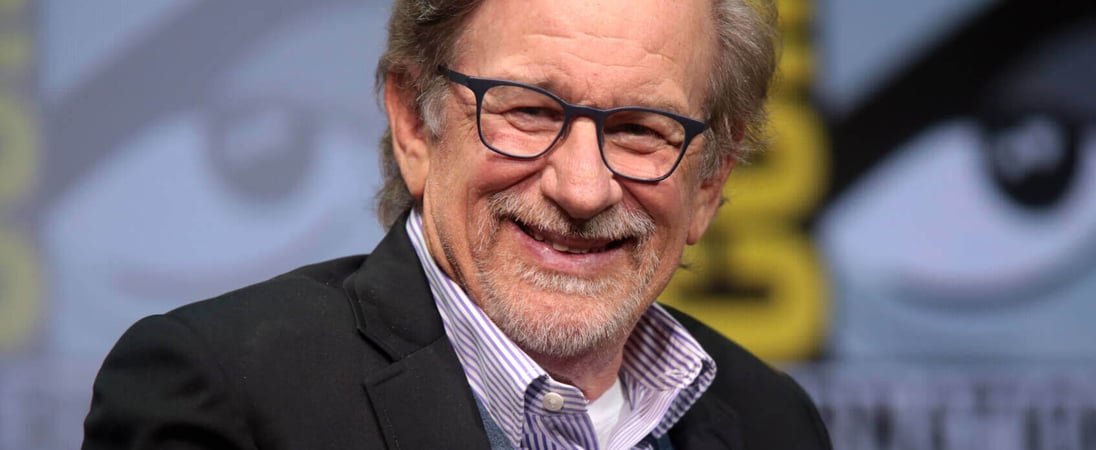
Steven Spielberg's birthday
Born on December 18th, 1946, Steven Allan Spielberg KBE, in Cincinnati, Ohio, is one of the most commercially successful directors of all time as well as being regarded as a pioneer of the modern-day blockbuster movies. Growing up in Phoenix, Arizona, Spielberg became interested in films from a young age. With his father’s camera, he started to make short films, shooting around twenty 8mm movies while in high school. An avid cinema goer, Spielberg wrote and directed his first film in 1963, financed by his father and shown in the local theater for one evening, called Firelight. The following year, he interned at Universal Studios’ editorial department for one summer. In 1968, Spielberg enrolled in California State University, Long Beach, but dropped out when Universal offered him a seven-year contract to direct films after he impressed the studio’s vice-president.
In 1969, Steven got his first professional job as a director for the pilot episode of anthology series Night Gallery. It was followed by other directing jobs, in which he also contributed to the screenplays, such as Marcus Welby, M.D., The Name of the Game, and Columbo. In 1971, he directed the television film Duel, as part of a four-movie deal with Universal. The film was met with positive reviews and an international release was planned. It was followed by Something Evil in 1972 and Savage in 1973, which didn’t perform as well as its predecessor. In 1974, Spielberg made his big screen debut with the crime drama The Sugarland Express, but it was a box office failure.
Spielberg achieved his first commercial success when he directed the horror-thriller movie Jaws in 1975. The feature went on to win three Academy Awards (Best Sound, Best Film Editing, and Best Original Dramatic Score) and thrust Steven into the Hollywood spotlight. In 1977, he wrote and directed Close Encounters of the Third Kind, which earned him his first nomination for the Academy Award for Best Director, among other nominations for the movie, but won only two categories. Spielberg aimed to tackle a different genre with the action-comedy 1941, but despite its modest box office performance, it was panned by the critics.
In 1981, Spielberg teamed up with fellow film-maker George Lucas to direct an action-adventure feature, Raiders of the Lost Ark, which was the first one of the Indiana Jones franchise. The film was a critical and commercial success, and got nominated to five Academy Awards, including Best Director. Spielberg returned to the franchise to direct Indiana Jones and the Temple of Doom (1984) and Indiana Jones and the Last Crusade (1989), also big hits. In 1982, Spielberg directed and produced the sci-fi feature E.T. the Extra-Terrestrial, to critical acclaim and it became one of the highest-grossing films of all time when it premiered. That same year, Steven produced and co-wrote the supernatural horror film Poltergeist. Most of Spielberg’s movies from this decade have now become classics, such as Twilight Zone: The Movie (1985), The Color Purple (1985), Empire of the Sun (1985), and Always (1989). As co-founder of Amblin Entertainment and DreamWorks production companies, Spielberg has been involved in Gremlins (1984), The Goonies (1985), the Back to the Future trilogy (1985-1990), and Who Framed Roger Rabbit (1988).
During the 1990s, Spielberg directed a series of blockbuster movies, including Hook (1991), Jurassic Park (1993), Schindler’s List (1993), The Lost World: Jurassic Park (1997) and Saving Private Ryan (1998). Jurassic Park went on to surpass the record previously held by E.T., and Schindler’s List won the Oscars for Best Picture and Best Director, plus five others, as well as three Golden Globes and seven BAFTA Awards. For Saving Private Ryan, Spielberg won his second Academy Award for Best Director. His success continued with the features A.I. Artificial Intelligence (2001), Minority Report (2002), Catch Me If You Can (2002), The Terminal (2004), and War of the Worlds and Munich in 2005. After becoming more selective with his directorial choices and focusing more on producing, Spielberg returned to the Indiana Jones franchise with its fourth installment, Indiana Jones and the Kingdom of the Crystal Skull in 2008. His most recent film credits, as both director and producer, include War Horse (2011), Lincoln (2012), The Post (2017), Ready Player One (2018), West Side Story (2021), and The Fabelmans (2022).
Also on this date...
Bake Cookies Day
Make a batch of your favorite biscuits, experiment with imaginative cookie cutter shapes or organize a bake sale for charity.
World Arabic Language Day
Like a melody from a distant land, this language dances with intricate calligraphy, inviting exploration into its rich tapestry.




